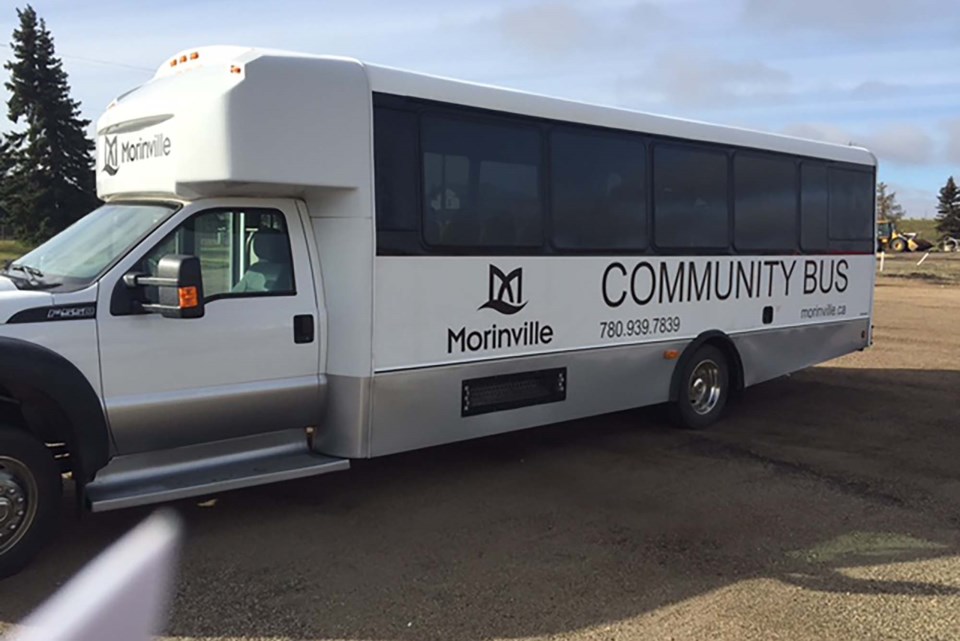Morinville council has decided to keep its community bus parked, but may test-drive a charter bus service next year.
Town council voted 5-2 (Councillors Scott Richardson and Ray White opposed) Oct. 11 to not sell the town’s community bus and to develop a pilot for chartered bus service.
In operation since 1990, the Morinville community bus provides transportation to local seniors, community groups, and persons with disabilities. The bus has been inactive since March 2020 due to the pandemic, and has not resumed service as the province’s Family and Community Support Services grants no longer cover trips and excursions. When administration suggested selling the bus last February to save money, council instead called for new funding models to keep it in operation.
Transit options
Town community services and infrastructure services manager Sharleen Edwards said the bus cost about $42,000 a year to run, and recommended selling it due to the town’s tight financial situation. Alternatively, the town could give the bus to a community group or sell the bus and contract a company to provide bus service.
A town-run bus would cost $4.50 per person on a five per cent cost-recovery basis and $91.50 per person at 100 per cent, Edwards estimated. Contracted bus service would cost $1 to $19, depending on the level of cost-recovery.
Gary Pool and Mike Dubas of the Morinville Rendez-Vous Centre urged council not to dispose of the bus, as area seniors needed it for transportation. They also said the centre was not informed of council’s plans to sell the bus until two weeks ago.
“We believe that a co-ordinated effort by the town and interested organizations in the area could make busing a viable option for all parties,” Dubas said, adding that the Rendez-Vous Centre could work with community groups to create an annual calendar of community bus trips.
Coun. Jenn Anheliger proposed to keep the bus and do a pilot study to determine the demand for chartered bus service.
“I’m not ready to dispose of the bus at this point.”
Richardson opposed the move, saying the town could instead do such a pilot with casual staff driving the community bus.
In an interview, Anheliger said the proposed bus pilot would be discussed later this fall and, if approved, roll out next year.
Tax policy
Council also approved changes to its tax policy Oct. 11 following extensive discussions at a Sept. 13 committee of the whole meeting. The policy shapes how council sets its tax rates at budget time.
While council had originally planned to write tax incentives into the policy, town financial services manager Travis Nosko said incentives would be better addressed through a separate bylaw he planned to present later this year.
The new tax policy says council would shift its residential/non-residential tax ratio by 0.05 a year until it reached 1-to-1.25 by 2025 — part of an ongoing effort to shift more of the town’s tax burden off residents and onto businessowners. The ratio is currently 1-to-1.1, and was at one point proposed to reach the regional average of 1-to-1.5 by 2028. Nosko said non-residential tax rates would still be below the regional average even after this shift.
The new policy states that council shall tax vacant non-residential properties 1.5 times more than occupied non-residential ones — a change from current practice, where the rate has bounced between 1.4 and 1.5 times more. Council shall also tax vacant, serviced residential lots at the same rate as non-residential lots starting in 2024 to encourage developers to fill in vacant lots.
These new tax policies were to be posted to the town’s website in the near future.




